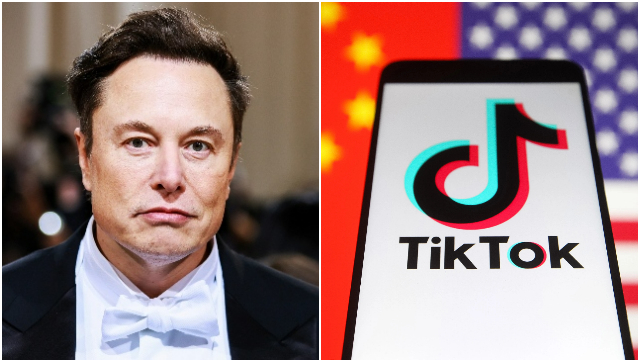A Different Perspective on Hegseth’s Confirmation Hearing

Pete Hegseth's confirmation hearing may have been dominated by political fireworks, but what if the real story is about the need for a change in how we view leadership in the Pentagon? While mainstream narratives focus on his qualifications—or perceived lack thereof—perhaps we should be asking whether the traditional metrics for qualifying Defense Department leaders are outdated.
Rethinking Qualifications: Experience vs. Innovation
The Senate Armed Services Committee's hearing on Pete Hegseth could be seen as a reflection of a larger debate: should we prioritize experience over innovation when it comes to leadership roles in large organizations like the Pentagon?
Traditionally, the focus has been on extensive military experience and a deep understanding of defense policy. However, with rapidly evolving threats like cyber warfare and space defense, perhaps it's time to consider leaders who bring fresh perspectives.
Hegseth, a former Army officer and television commentator, may lack the typical high-level defense experience, but he brings a different kind of experience to the table—one rooted in media and public engagement. In an era where public perception and media narratives can shape policy as much as legislative action, this could be an asset rather than a liability.
Consider the tech industry, where companies often prioritize innovative thinkers over traditional resumes. Leaders like Elon Musk and Mark Zuckerberg didn't follow conventional paths, yet they have profoundly impacted their fields. Could the same principle apply to the Pentagon?
The Lobbying Machine: A Double-Edged Sword
It's no secret that lobbying plays a significant role in political appointments. The intense lobbying that Senator Joni Ernst experienced from conservative groups on behalf of Hegseth is a standard practice, not an anomaly. However, rather than viewing this as a negative, it’s worth considering the potential benefits of such advocacy.
Lobbying can bring diverse voices and perspectives into the conversation, pushing candidates to address a broader range of issues. For instance, advocacy by veterans' groups could ensure that issues like mental health and veteran care receive the attention they deserve. Lobbying can be a mechanism for democratizing the selection process, allowing various stakeholders to voice their interests and concerns.
Moreover, Senator Ernst's shift from reservations to potential support could suggest that lobbying efforts succeeded in highlighting aspects of Hegseth's candidacy that were not initially apparent. While lobbying has its downsides, it can also promote informed decision-making by bringing hidden strengths to the forefront.
The Unconventional Candidate: A Breath of Fresh Air?
One of the key arguments against Hegseth is his unconventional background. Critics argue that his time as a television commentator doesn't equip him to manage the Pentagon's vast responsibilities. Yet, isn't it possible that an outsider's perspective is exactly what's needed?
The Department of Defense, like many large bureaucracies, can become insular and resistant to change. Bringing in a leader from outside the traditional pipeline might challenge entrenched norms and encourage innovative solutions. Consider how outsider CEOs have successfully turned around struggling companies by bringing fresh ideas and questioning the status quo.
Furthermore, Hegseth's media experience could enhance the Pentagon's communication strategy, an essential component of modern defense that goes beyond traditional military tactics. In a world where information warfare is a significant threat, understanding media dynamics is crucial. Hegseth's ability to engage with the public and shape narratives could be an untapped asset.
Changing Warfare, Changing Leadership
As modern warfare evolves, so too must the leadership of defense organizations. Cyber threats, space security, and information warfare are areas where traditional military experience might not be as relevant. In fact, the Pentagon itself has acknowledged the need to adapt to new threats.
In this context, leaders who can think outside the box and bring diverse experiences to the table might be more effective. Hegseth's critics often focus on what he lacks, but perhaps they overlook what he could bring—an ability to navigate a rapidly changing global landscape with a fresh set of tools.
It's worth noting that many successful leaders have been criticized for their unconventional approaches before proving their effectiveness. Consider Winston Churchill, who was initially seen as an unlikely war leader but ultimately became one of the most revered figures in modern history.
A Call for Open-Mindedness
Pete Hegseth's confirmation hearing might have been contentious, but it also serves as an opportunity to reconsider what we value in our leaders. While it’s easy to focus on traditional qualifications, the world is changing, and so too must our approach to leadership.
By embracing unconventional candidates, we open the door to innovative solutions that can address the complex challenges of modern defense. Rather than dismissing Hegseth based on a checklist of traditional qualifications, perhaps we should consider what his unique background could contribute to the Pentagon's future.
In the end, the question isn't whether Hegseth fits into the mold of past leaders, but whether he can help shape a new model for leadership that's better suited to the challenges of today and tomorrow.

Screen Studio
Beautiful Screen Recordings in Minutes. Screen Recorder producing high-impact videos automatically. Designed for macOS.
)

